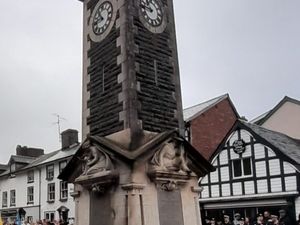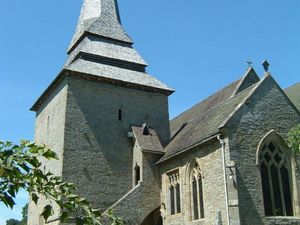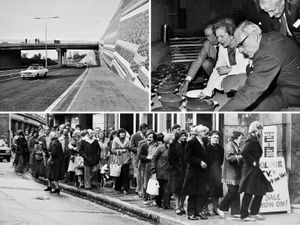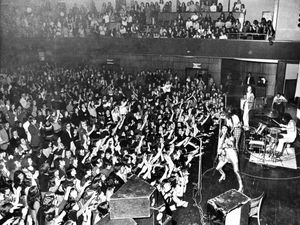Out of Africa: How a Shropshire man became a Ghanaian tribal chief
‘A loyal son of the empire and a true son of Ghana,’ reads the plaque beneath a bronze head commemorating Chief Nana Kofi Obonyaa.
The memorial sits in the shadow of one of his old cottages – the one in Ghana, not in Ludlow, where Chief Obonyaa aka Jimmy Moxon grew up.
Born in Shrewsbury in January 1920, Roland James Moxon, known as Jimmy, was educated at Donestone School, Macclesfield, where his father was headmaster, and later read history at Cambridge before embarking to the Gold Coast colony as a fresh-faced civil servant in 1942.
No-one knew then, and many still can’t quite believe, the turn the life of the scholar's son from Shropshire was about to take.
During his first years in Africa, he won popularity when he visited farmers to encourage them to switch from cocoa to food crops – a decision that would save countless lives.
He was embraced by the communities he became a part of - both the elite with whom he rubbed shoulders while carrying out his government business and the villagers themselves.
As District Commissioner of several Gold Coast regions, he fell in love with his new home and chose to stay after his contract with the British colonial administration ran out.
His wide circle of friends came to include Kwame Nkrumah, who was prime minister from 1952 and ruled over the birth independent Ghana from the old Gold Coast in 1957. The same year, Moxon got his OBE.
Landing a new job in the Ghanaian government, Moxon immersed himself in the region’s customs and culture.
He returned to the UK about once a year, but replanted his roots firmly in his new nation and never lived anywhere else again.
After his retirement he became a publisher, farmer and restaurateur, always looking for new innovation and ways to expand horizons; his own and those of others.
He ran a bookshop, and founded Ghana’s Oxford and Cambridge Society.
While his Ludlow cottage had an orchard, the one he built on the hills at Aburi had a silk cotton tree that was to become the origin of his ceremonial name.
The people of Aburi began jokingly calling him Nana Kofi Onyaase, meaning he was chief of the patch of land under the tree.
It was not long after this that he was officially made Ankobiahene of Aburi - an important position in tribal culture.
There was nothing new about a popular visiting official being dressed up and made an honorary village ‘chief’, but Moxon belongs to a select crowd of white chiefs actually recognised by government.
As a chief he had traditional wives but never actually married or had children; he regarded the natives of his adopted home as family.
Jimmy died in 1999 and a shrine has been placed in the shadow of the silk cotton tree that gave him his tribal name.
He had won the country’s adoration as a British civil servant during the Second World War when he personally visited farmers, encouraging them to make the switch from cocoa to food crops.
Beneath a bronze head, a simple plaque reads “a loyal son of the empire and a true son of Ghana”.
His diplomatic skills served Jimmy well, but also stand as a metaphor for the way Ghana has navigated its post-colonial path.
There have been obstacles, and challenges remain, but optimism and decency seem to flourish in the tropical climate.





